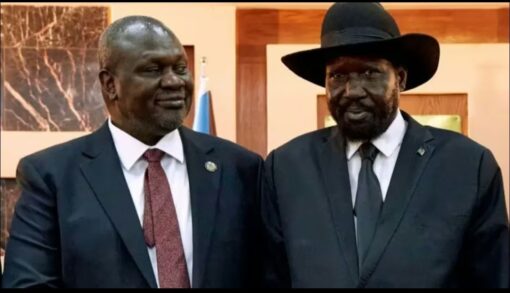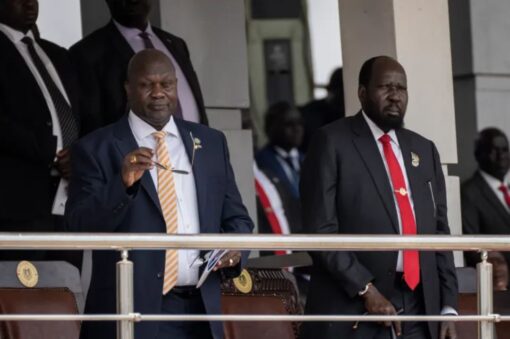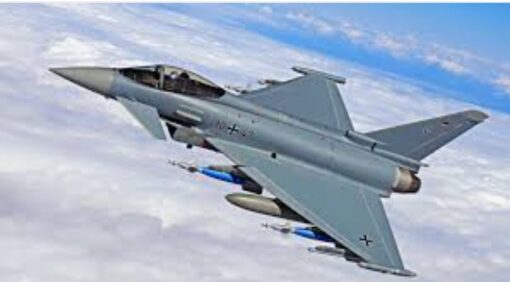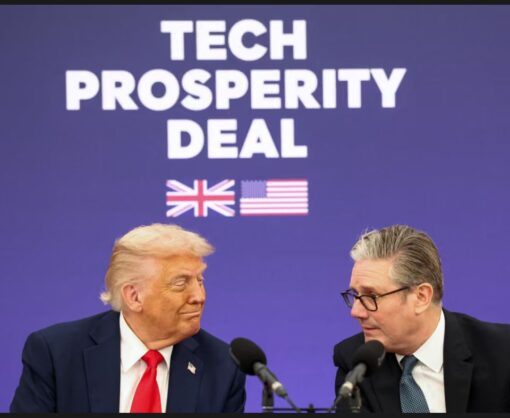The political fault lines in South Sudan have widened dramatically as Vice President Riek Machar stands trial for treason, a move that many analysts see as the most significant blow yet to the country’s fragile power-sharing arrangement.
The trial, which began this week in the capital Juba, has put the spotlight on a unity government that was already teetering under the weight of mistrust, competing ambitions, and unresolved questions of accountability.
The South Sudan treason trial marks a turning point for Africa’s youngest nation, where peace has always been fragile, and political deals often collapse under pressure.
For supporters of President Salva Kiir, the proceedings are framed as a quest for justice and national security. For Machar’s loyalists, however, the trial represents a betrayal of the peace accord that was meant to bring reconciliation after years of devastating conflict.

One South Sudanese lawyer following the case remarked that the very idea of putting Machar on trial is an admission that the unity government no longer exists in spirit, describing it as the slow collapse of an experiment never built on trust.
The 2018 peace deal, which established the unity government between Kiir and Machar, was hailed internationally as the framework that could finally end years of civil war.
The two leaders, bitter rivals since independence in 2011, were pressed by regional powers and international partners to share power, despite repeated clashes between their supporters.
That fragile agreement now appears to have come undone. The trial of the vice president for treason sends a clear signal that the political marriage of convenience has dissolved.
South Sudanese citizens, who have lived through cycles of war, displacement, and broken promises, now fear a return to widespread violence.
A Juba activist described the trial as the nail in the coffin of the unity government, saying that people had hoped for peace, food security, and jobs but were instead dragged back into the same political battles between elites who have never trusted each other.
Machar is accused of plotting against the state, undermining the constitution, and supporting armed groups that have destabilized regions across the country.
Prosecutors argue that his actions represent not only disloyalty to the government but a direct threat to national sovereignty. Yet the political context makes the South Sudan treason trial far more complex than a simple legal proceeding.
Observers note that both Kiir and Machar have long relied on military bases and ethnic constituencies rather than institutional legitimacy. Putting Machar on trial risks inflaming divisions within the army and igniting new clashes in parts of the country where his supporters remain influential.
A regional diplomat warned that the government is gambling on being able to neutralize Machar without sparking another civil war, but history shows that suppressing him often leads to more instability.
The trial has also drawn cautious reactions from regional and international actors. The African Union has called for restraint, urging both sides to avoid steps that could unravel the peace process.
The United Nations Mission in South Sudan expressed concern that political trials could erode the credibility of transitional justice mechanisms that were promised under the peace deal.
Western governments that have invested heavily in South Sudan’s fragile peace efforts are equally uneasy. Officials in Washington and London emphasized the need for dialogue, warning that a breakdown of the unity government could lead to new humanitarian emergencies.
South Sudan remains one of the most aid-dependent countries in the world. Millions are already at risk of famine, and displacement continues due to local violence. A return to nationwide fighting could push the country deeper into crisis, undoing years of fragile recovery.
Despite facing the gravest charges, Machar has remained defiant. In a statement through his political office, he rejected the accusations and accused President Kiir of weaponizing the judiciary to silence dissent.
He insisted that the trial is not about justice but about eliminating political competition, warning that South Sudan needs reconciliation, not revenge.
His loyalists have echoed this message, warning that excluding Machar from politics could spark anger among communities that see him as their primary representative. Many of his followers see the treason charges as yet another chapter in a long struggle against political marginalization.
The animosity between Kiir and Machar has defined South Sudanese politics since independence.
In 2013, a power struggle between the two leaders triggered a brutal civil war that killed hundreds of thousands and displaced millions. Although peace agreements were signed in 2015 and 2018, each truce has been fragile, often breaking down under the weight of mistrust.
The South Sudan treason trial therefore carries echoes of that painful history. Many South Sudanese fear that the current situation could mirror 2013, when political rivalry spiraled into armed conflict along ethnic lines. As one displaced teacher in Bentiu put it, every time the leadership fails to compromise, ordinary people pay the price.

The trial is expected to last several weeks, though many doubt it will run its full course. Analysts speculate that it could either be suspended under international pressure or used as leverage in backroom negotiations between Kiir and Machar.
If the proceedings move forward to a verdict, the consequences could be dramatic. A conviction would almost certainly end Machar’s political career, removing one of the most prominent figures from the country’s leadership. Yet such an outcome could also plunge South Sudan into another era of uncertainty, as Machar’s supporters would likely reject the legitimacy of the decision.
If, on the other hand, the trial is quietly abandoned, it may underscore the weakness of South Sudan’s institutions and reinforce the perception that justice is subordinate to politics.
For South Sudanese citizens, the trial is yet another reminder that elite power struggles overshadow everyday needs. The country’s oil wealth has failed to translate into development, while corruption remains endemic.
Humanitarian groups continue to warn of rising hunger, displacement, and lack of access to basic services. A local journalist in Juba observed that people are tired of watching the same pattern repeat itself: leaders fighting, accusing each other of treason, and the country sliding back to war. What ordinary South Sudanese want is not political theater but stability.
As the treason trial of Vice President Riek Machar unfolds, South Sudan finds itself at a crossroads. The collapse of the unity government has exposed the limits of peace agreements built on fragile compromises.
While the proceedings may satisfy those seeking accountability, they also risk reopening old wounds and deepening political divides.
Whether this trial becomes a step toward genuine justice or the beginning of another cycle of conflict will shape the future of South Sudan. For now, the trial symbolizes not only Machar’s fate but the fate of a nation still struggling to find peace.


